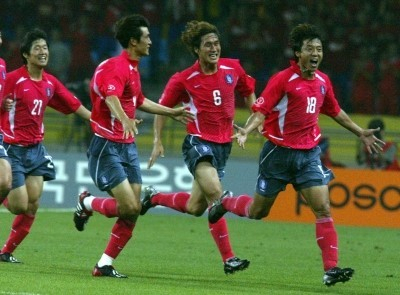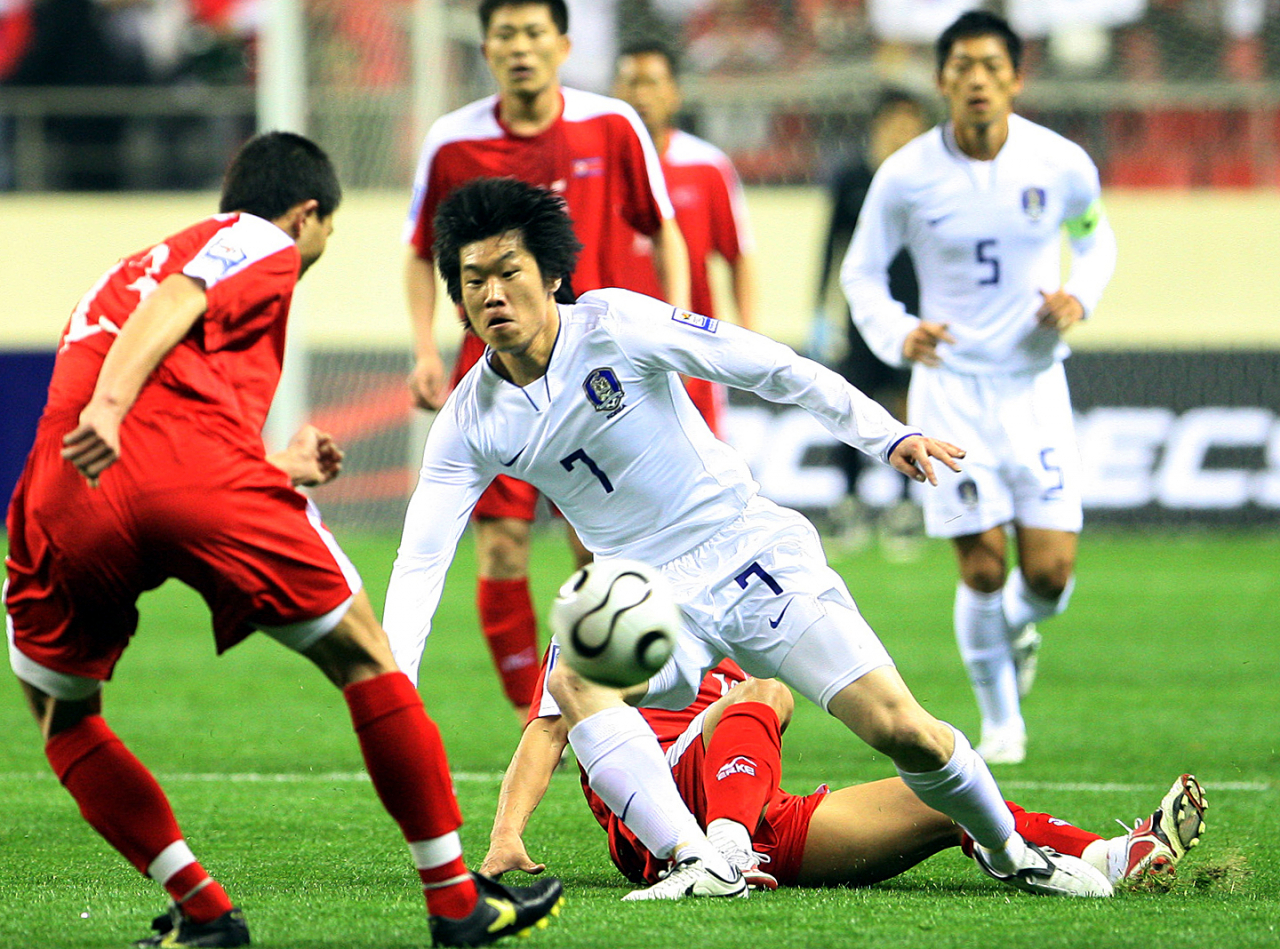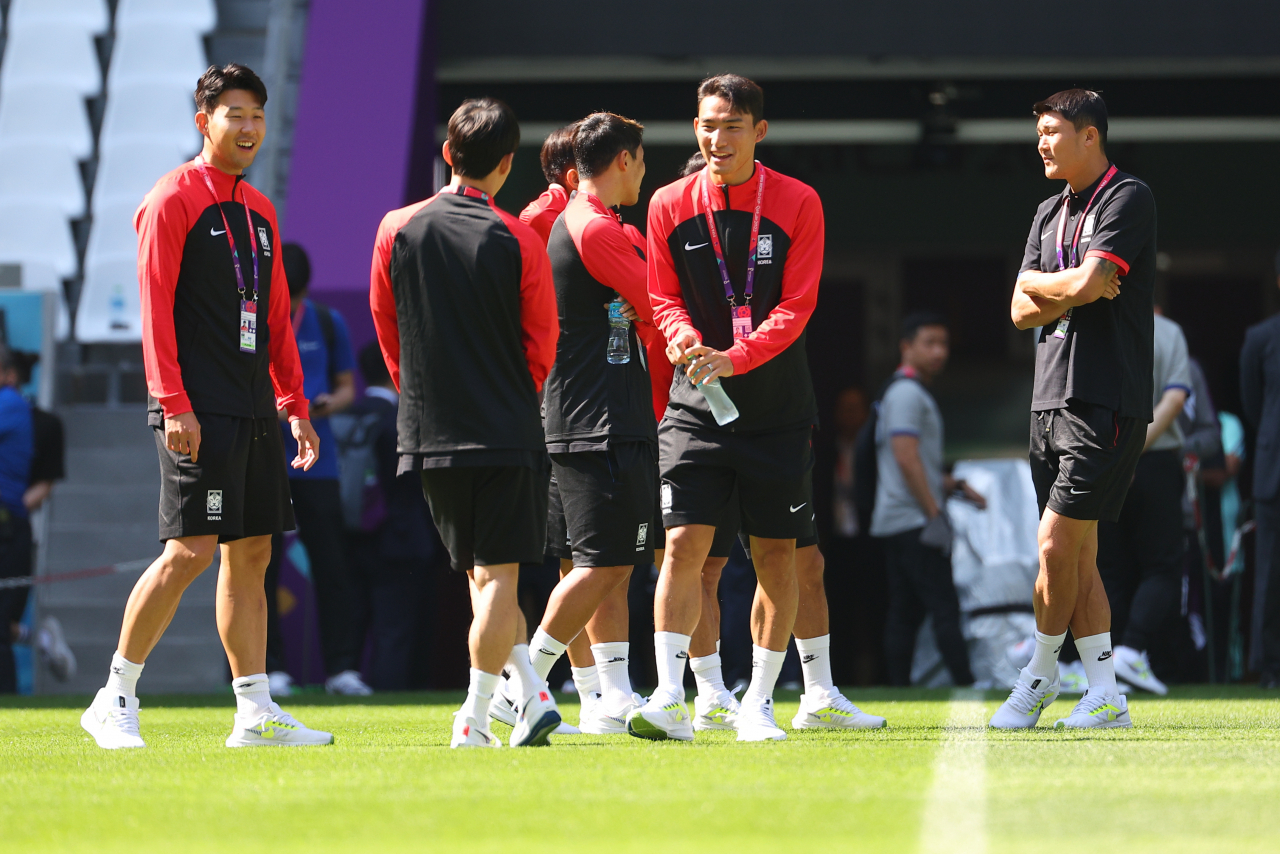The FIFA World Cup Qatar 2022 is the 11th time South Korea has participated in the event.
Although it has never been considered a realistic contender for the soccer world’s top trophy, the Reds have proved that they can't be ignored, reaching semifinals in 2002 and beating defending champion Germany in 2018.
Here’s a look back at South Korea’s history at the World Cup.
Humble beginnings
Before the turn of the century, South Korea used to be among the smallest of fishes at the World Cup. After missing the first three events due to being colonized by Japan and the fourth due to the Korean War, South Korea qualified for the World Cup for the first time in 1954.
But the Koreans’ first outing was far from glorious. They were demolished by Hungary 9-0 -- tied for the worst defeat in World Cup history -- and annihilated 7-0 by Turkey. After missing the subsequent seven World Cups, South Korea clawed their way back in 1986 and have not missed the event since.
The 1986 World Cup in Mexico was a memorable one. The nation had formed a strong squad around Cha Bum-kun, a lethal scoring machine who was among the best foreign players in the German Bundesliga.
While the legendary Diego Maradona led a resounding 3-1 victory against the Koreans, team captain Park Chang-sun managed to score the nation’s first ever goal against the eventual champions. South Korea held Bulgaria to a draw the next game with a goal from Kim Jong-boo, resulting in the nation getting first World Cup points.
South Korea remained around the middle to bottom of the 32 qualifying teams for the remainder of the century.

The improbable run to final four in 2002
South Korea and Japan became the first Asian nations to host the World Cup in 2002 .
South Korea had hired a high-profile coach -- the Dutchman Guus Hiddink -- in hopes of moving past the group stage.
Under Hiddink’s stewardship, the defense-oriented, energetic squad built around captain Hong Myung-bo got the first South Korean win against Poland 2-0, got a 1-1 draw against the US, and defeated championship contender Portugal 1-0 for its first advancement to the knock-out stages.
Buoyed by a feverish support by the home crowd, South Korea went on to beat two other favorites, Italy and Spain, to advance to the semifinals, before falling to Germany 1-0. For this, however, the Koreans would eventually get their revenge.
The Koreans’ unexpected run resulted in them finishing fourth in the event, after losing 3-2 to Turkey in the third-place playoff. More importantly, what had been dubbed “Hiddink Magic” boosted the sport’s popularity in the country and sparked interest from big clubs in Korean players.
This resulted in several of the 2002 squad moving on to the European leagues, including Park Ji-sung signing with PSV Eindhoven and then becoming the first Korean to play in the English Premier League after joining Manchester United in 2005.
Top 16 on foreign soil
Despite the heroics of 2002, there had been suspicion that the Koreans’ success had been fueled in part by home field advantage, and they failed to progress from their group in 2006.
South Korea set out to prove the doubters wrong in 2010, with Park now captain.
Perennial powerhouse Argentina was expected to top Group B with ease, but the other spot for the top 16 was up for grabs. South Korea won the first match against Greece 2-0, lost to the Argentinians 4-1, but held Nigeria to a draw in the final match, moving on to the knockout stages for the second time.
They lost to eventual semifinalist Uruguay in the next round.

'Miracle of Kazan'
After the embarrassment of finishing dead-last in its group in 2014, South Korea did not seem to have a bright prospects at the 2018 World Cup in Russia. Group F consisted of the defending champion Germany, Sweden and Mexico, and South Korea was widely considered the weakest team in the group.
The grim forecasts were all but realized when Korea lost both matches against Sweden and Mexico, heading into the group stage finale against the mighty Germans.
It did not seem to be a tall order for World No. 1 Germany to secure the winning points against the 57th-ranked South Korea, and the match seemed to go mostly in their direction. Germany had 74 percent possession, and had 26 shots to Korea's 11, though only six were on target.
Neither team was able to penetrate the other’s defense in the 90 minutes of regular play, but an injury-time error by the Germans left Kim Young-gwon able to finish from close range.
Desperate, Germany went all-in to score with goalkeeper Manuel Neuer advancing into the Korean half. But Neuer was tackled, and a sweeping long ball found Son Heung-min just yards from the German goal. Germany's fate was sealed when Son slotted the ball into an empty net.

The surprise win was not enough to save South Korea: Sweden's 3-0 defeat of Mexico in the other group match consigned Korea to third place in the group. The coaching staff kept this a secret to the players, who went into the match knowing they had a chance to make it to the next round if Mexico won.
Despite the failure to survive the group stage, South Koreans relished one of the biggest upsets in World Cup history, naming it “Miracle of Kazan.” Son, who scored the second goal, said in July that he still considers this the finest moment of his career.









![[Kim Seong-kon] Democracy and the future of South Korea](http://res.heraldm.com/phpwas/restmb_idxmake.php?idx=644&simg=/content/image/2024/04/16/20240416050802_0.jpg&u=)








![[KH Explains] Hyundai's full hybrid edge to pay off amid slow transition to pure EVs](http://res.heraldm.com/phpwas/restmb_idxmake.php?idx=652&simg=/content/image/2024/04/18/20240418050645_0.jpg&u=20240418181020)

![[Today’s K-pop] Zico drops snippet of collaboration with Jennie](http://res.heraldm.com/phpwas/restmb_idxmake.php?idx=642&simg=/content/image/2024/04/18/20240418050702_0.jpg&u=)